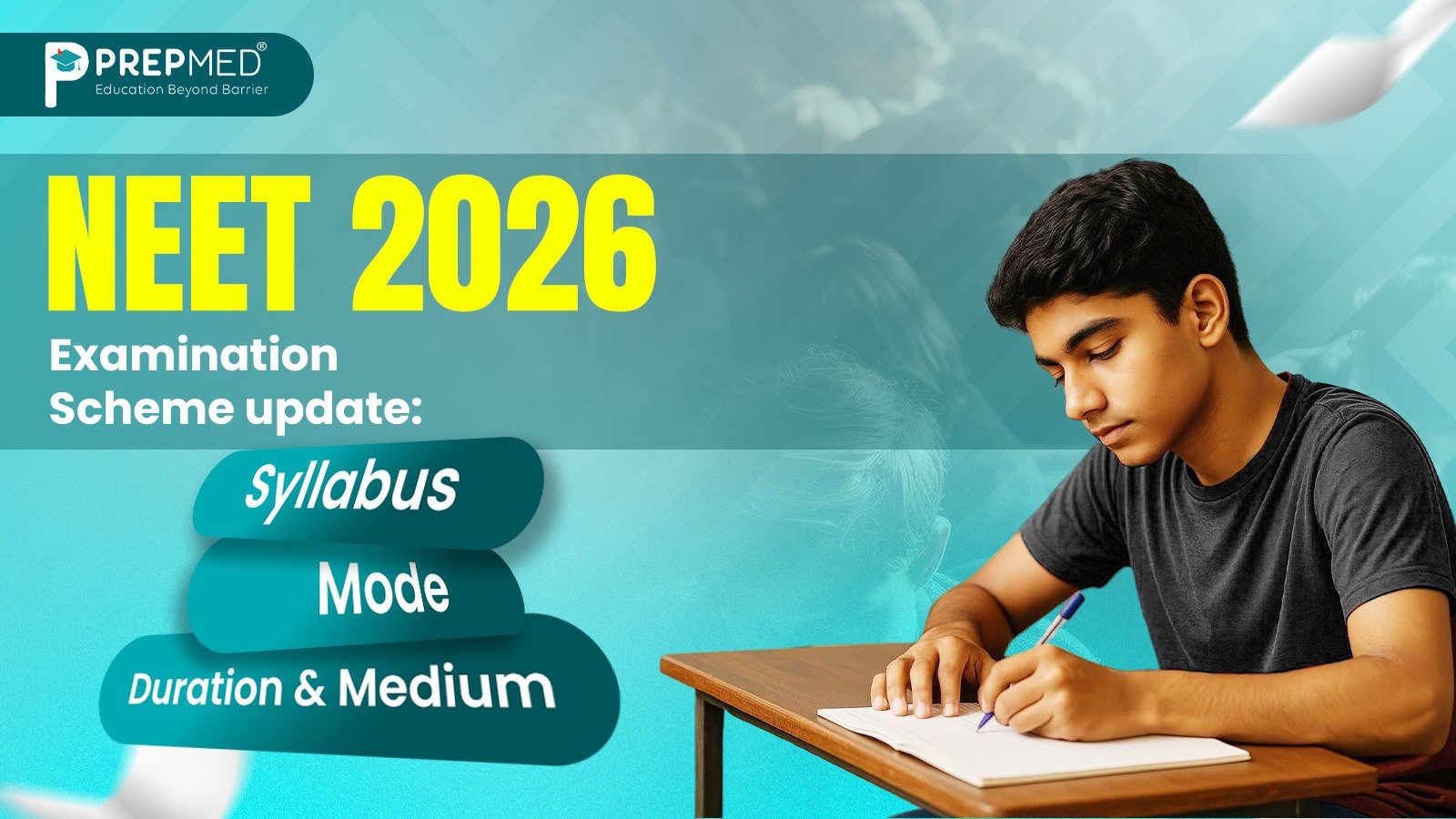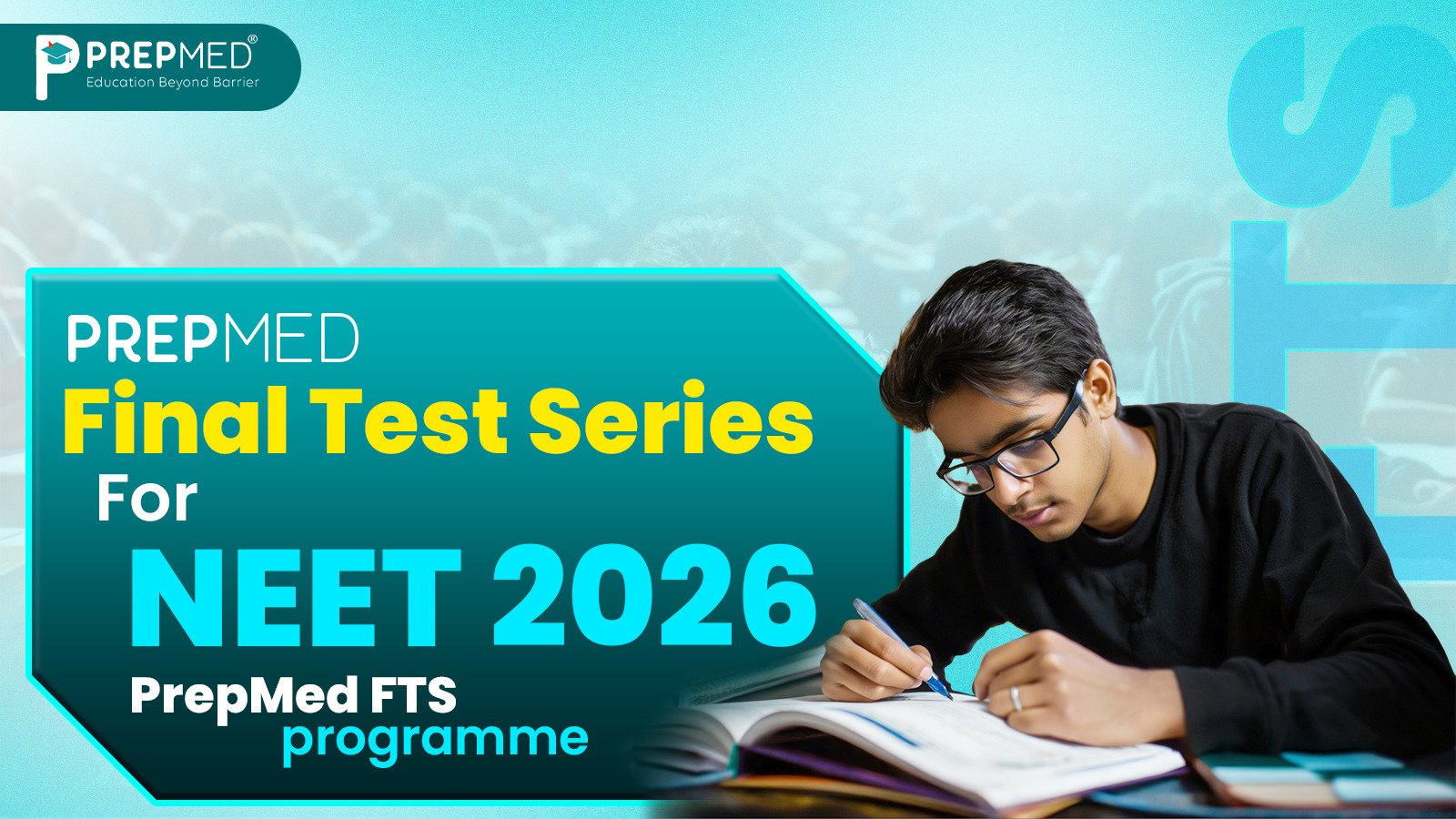April 05, 2025
One Year Study Plan to Crack NEET 2026 Successfully
Cracking NEET 2026 in one year may seem challenging, but with a well-structured study plan, disciplined execution, and smart NEET preparation strategies, it is entirely possible. A focused approach will enable you to reach a 700+ score and get admission to your desired medical college even if you face difficulty in Class 11.
Understanding the NEET 2026 Exam Structure
- Total Marks: 720
- Subjects: Physics, Chemistry, and Biology
Question Breakdown:
- Biology: 90 questions (360 marks)
- Chemistry: 50 questions (200 marks)
- Physics: 50 questions (200 marks)
Marking Scheme:
- +4 for each correct answer
- -1 for each incorrect answer
Crack NEET 2026 in 1 Year: Month-Wise Strategy
Phase 1 (Months 1-3):
The initial three months should be dedicated to finishing Class 11 material and studying a major part of Class 12 content. The success of your NEET exam depends majorly on on you study class 11 topics, they make up about 50% of the NEET syllabus.
Goals for Months 1-3
- Complete 70% of the Class 11 syllabus
- Begin Class 12 syllabus alongside
- Study for 6-8 hours daily
- After finishing each topic, students should solve NCERT-based MCQs
- Revise important formulas and diagrams
Study Plan for This Phase
- Biology: Study Biology through NCERT material by reading each line and memorising the content. Practise note writing to memorise important definitions, cycles and diagrams.
- Physics: Students should concentrate on studying mechanics together with motion and work-energy principles from physics. Practice numerical problems extensively.
- Chemistry: Build a strong foundation in atomic structure, chemical bonding, and organic chemistry basics.
High-Weightage Topics to Cover
- Biology: Cell Structure and Function, Human Physiology, Plant Physiology.
- Physics: Motion in One and Two Dimensions, Laws of Motion, Work-Power-Energy
- Chemistry: Periodic Table, Thermodynamics, Chemical Bonding
Candidates need to solve 50 MCQs each day for every subject while conducting weekly mock tests to monitor their advancement.
Phase 2 (Months 4-6)
It is important for students to complete their class 11 study material before starting with class 12th material. The academic focus shifts to improving both speed capabilities and exact execution skills.
Goals for Months 4-6
- Complete 50% of the Class 12 syllabus
- Revise Class 11 concepts regularly
- The daily study duration should be extended to 10 hours.
- Students should take complete mock tests for a full duration every two weeks.
- Students must solve at least one hundred MCQs from each subject every day.
Study Plan for This Phase
- Biology: Demands attention on genetics together with evolution and human reproduction.
- Physics: Cover electrostatics, magnetism, optics, and modern physics. Focus on conceptual clarity.
- Chemistry: Strengthen concepts in coordination chemistry, organic reactions, and chemical kinetics.
Phase 3 (Months 7-9)
The students transition their focus to revision work and previous-year questions (PYQs) and mock tests after completing most of the curriculum.
Goals for Months 7-9
- Complete the remaining Class 12 syllabus
- Revise Class 11 thoroughly
- Students should perform mock tests as a regular practise every other day.
- Solve 200+ MCQs per subject daily
- Identify and strengthen weak topics
Study Plan for This Phase
- Biology: Concentrate on the NEET papers from the previous year. The NCERT material needs at least three full revisions.
- Physics: Study electrostatics, magnetism, optics, and modern physics. Study conceptually.
- Chemistry: Synthesise concepts in chemical kinetics, coordination chemistry, and organic reactions.
Key Areas for Smart Revision
- Formulae & Short Notes Revision: Daily one-hour review
- Error Analysis: Find weak areas from previous mock tests
- Speed Practice: Test-takers should complete 50 questions in 30 minutes to improve their speed during the exam.
Phase 4 (Months 10-12)
The final three months serve as the most important period for achieving maximum scores. Candidates should dedicate this phase exclusively to revision work while also working on speed and accuracy development.
Goals for Months 10-12
- Students should revise the entire NEET syllabus two times during their NEET preparation.
- Attempt daily full-length mock tests
- Master OMR filling strategies
- The key to preventing burnout while maintaining good mental health should be prioritised.
Study Plan for This Phase
- Students should complete NCERT revision of Biology while focusing on high-yield topics and assertion-reason practise.
- Students should dedicate their time to developing problem-solving methods and mastering rapid calculations in the subject of Physics.
- Students should focus on enhancing their knowledge of reaction mechanisms while mastering challenging multiple-choice questions in Chemistry.
Final Revision Techniques
- Students should complete at least ten complete NEET mock tests.
- Review previous test mistakes followed by studying topics with weak understanding.
- Solve the entire test paper in a time frame of 180 minutes.
- Candidates need to create an emotionally stable and confident state of mind before the exam to prevent final-minute stress.
Click here to watch a detailed video with a step-by-step breakdown of a one-year study plan to crack NEET in 2026.
Effective Time Management Strategies for NEET 2026
Time management plays a crucial role in NEET 2026 preparation. Students who want to succeed in NEET 2026 must learn effective methods to maximise their productivity and efficiency because of their extensive syllabus, multiple subjects and competitive performance expectations.
1. Follow the Pomodoro Technique
Students face challenges with sustained focus and fatigue symptoms when they spend extended periods studying. The Pomodoro Technique stands as a proven time management approach which helps students maintain their concentration and memory function better.
- Studying for fifty minutes followed by ten minutes of rest time.
- The study session should end after completing four cycles with a thirty-minute extended break.
- During your breaks you should either stretch your body or drink water or perform brief physical exercises to regain mental clarity.
The method protects against mental fatigue, which enables students to work productively for extended periods.
2. Set Daily, Weekly, and Monthly Study Goals
A structured study plan with clear goals ensures that students stay on track and complete the syllabus well before the NEET 2026 exam date.
- Students should aim to study particular topics and solve 100 MCQs each day for every subject.
- Each week, students need to spend their time studying previously learned material and doing complete practise tests.
- The monthly work schedule includes completing substantial curriculum sections followed by assessment through testing methods.
Goal-oriented methods help students prevent procrastination while developing their self-confidence.
3. Prioritise Weak Areas and High-Weightage Topics
Many NEET candidates spend excessive time working on simple topics while ignoring their academic weaknesses. Students who want to achieve maximum scores need to direct their attention toward:
- Students should allocate additional study time to their weak subjects after identifying specific difficult topics.
- Students need to focus their efforts on studying chapters that hold high importance in the NEET exam.
- Students should analyse errors in their mock tests to build strength in their weak areas.
Students need to dedicate extra study time to subjects which prove most challenging to them.
4. Avoid Distractions and Stay Focused
With social media, notifications, and entertainment platforms, distractions are a major challenge for students preparing for NEET 2026.
- Students should either place their phones in a different location or limit their phone usage to academic activities when studying.
- A quiet space without clutter enables students to concentrate better during their studies.
Students maximise their study time by removing all possible distractions from their environment.
Conclusion
Managing time effectively is the key to cracking NEET 2026 in one year. Students who adopt proper study methods for NEET 2026 success can study the entire curriculum and enhance their weak subjects while improving their mock test results.
Students who use structured plans and active learning approaches along with self-assessment methods will achieve their best NEET preparation results to secure a high NEET 2026 position.
For expert guidance, personalised study plans, and top-quality NEET preparation resources, visit PrepMed today!
Also read:
NEET Preparation: Crash Courses Versus Regular Coaching
DOCTOR HUNT exam: A catalyst that aims to boost your medical preparation journey
Understanding the Challenge: What is the right time to start the NEET UG preparation?






